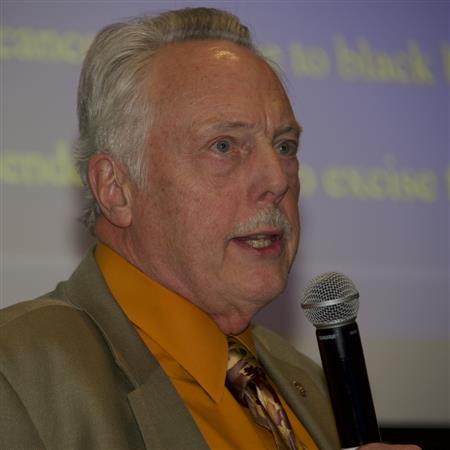 Last week, our resourceful president, Dr. Rob Marschke, filled in at the “last minute” when our scheduled speaker had to cancel. Rob’s talk was on the history of the treatment of cancer – starting with the first illustrations of cancer in Egypt dating to 2500 BC. Likewise, the first treatment of breast cancer (cauterization) was depicted in early Egypt paintings (1600 BC.).
Last week, our resourceful president, Dr. Rob Marschke, filled in at the “last minute” when our scheduled speaker had to cancel. Rob’s talk was on the history of the treatment of cancer – starting with the first illustrations of cancer in Egypt dating to 2500 BC. Likewise, the first treatment of breast cancer (cauterization) was depicted in early Egypt paintings (1600 BC.).Hippocrates, considered to be the father of medicine (460-370 BC), described and illustrated a variety of cancers. Galen, personal physician to Marcus Aurelius, was the first to recommend surgical excision of cancer which has persisted to this day as one of the 3 pillars of cancer treatment. From the mid 17th century to the mid-19th-century major advances included the introduction of a major pain killer (morphine) in 1817 and the invention of the hypodermic syringe (1857) allowing for some degree of analgesia during surgical procedures. In 1882, Halstead introduced the radical mastectomy which persisted well into the 20th century as the standard treatment for breast cancer.
In 1898, Marie and Pierre Curie discovered radium. Radiation therapy was soon applied to various cancers becoming the second pillar of cancer treatment.
In the mid-20th-century nitrogen mustard was used successfully against malignant lymphoma. This introduced the third pillar of cancer therapy, chemotherapy. After training and practice at Mayo Clinic Dr Marschke brought his expertise to Ft Collins as a clinical oncologist and chemotherapist.
The next part of the presentation focused on advances in chemotherapy progressing to targeted therapy and biologics. In the 1950’s and 60s chemotherapeutic agents were used in combination to successfully treat and potentially cure testicular tumors, Hodgkin’s Disease and certain forms of leukemia. Starting in the 1990’s and continuing until today biologic targeted therapy provides an effective treatment for selected cancer patients with fewer side effects than standard chemotherapy. Vaccination for viruses has become a new method of preventing certain cancers.
Dr Marschke highlighted the importance of government support in cancer research in the US including creation of the National Cancer Institute and support for the mapping of the human genome.
Although not planned, this talk might be considered a “prequel” to Dr Steven Schuster’s presentation to FCRC earlier this year which covered the very latest developments in the medical treatment of cancer, focusing on targeted and biological therapies.